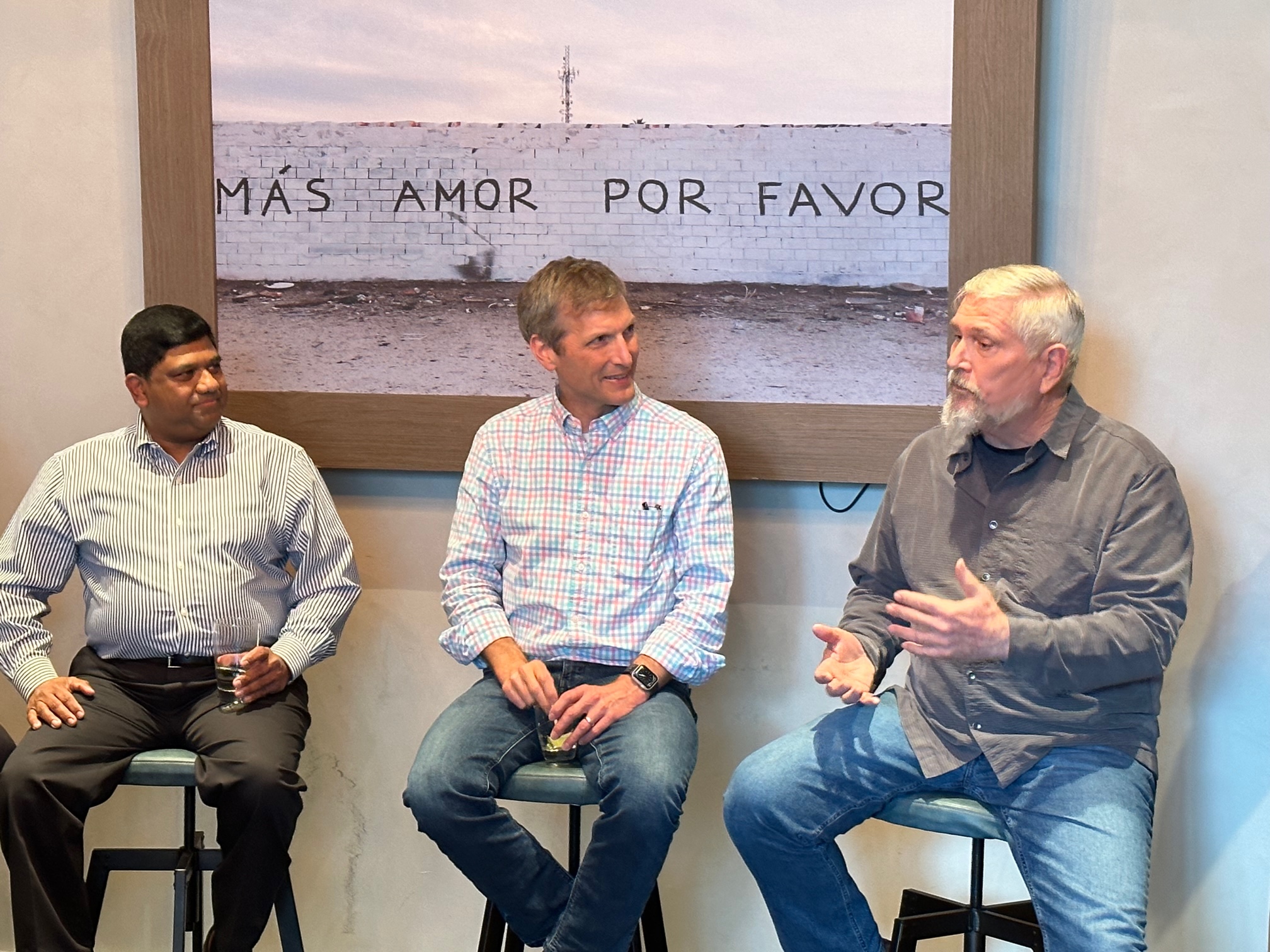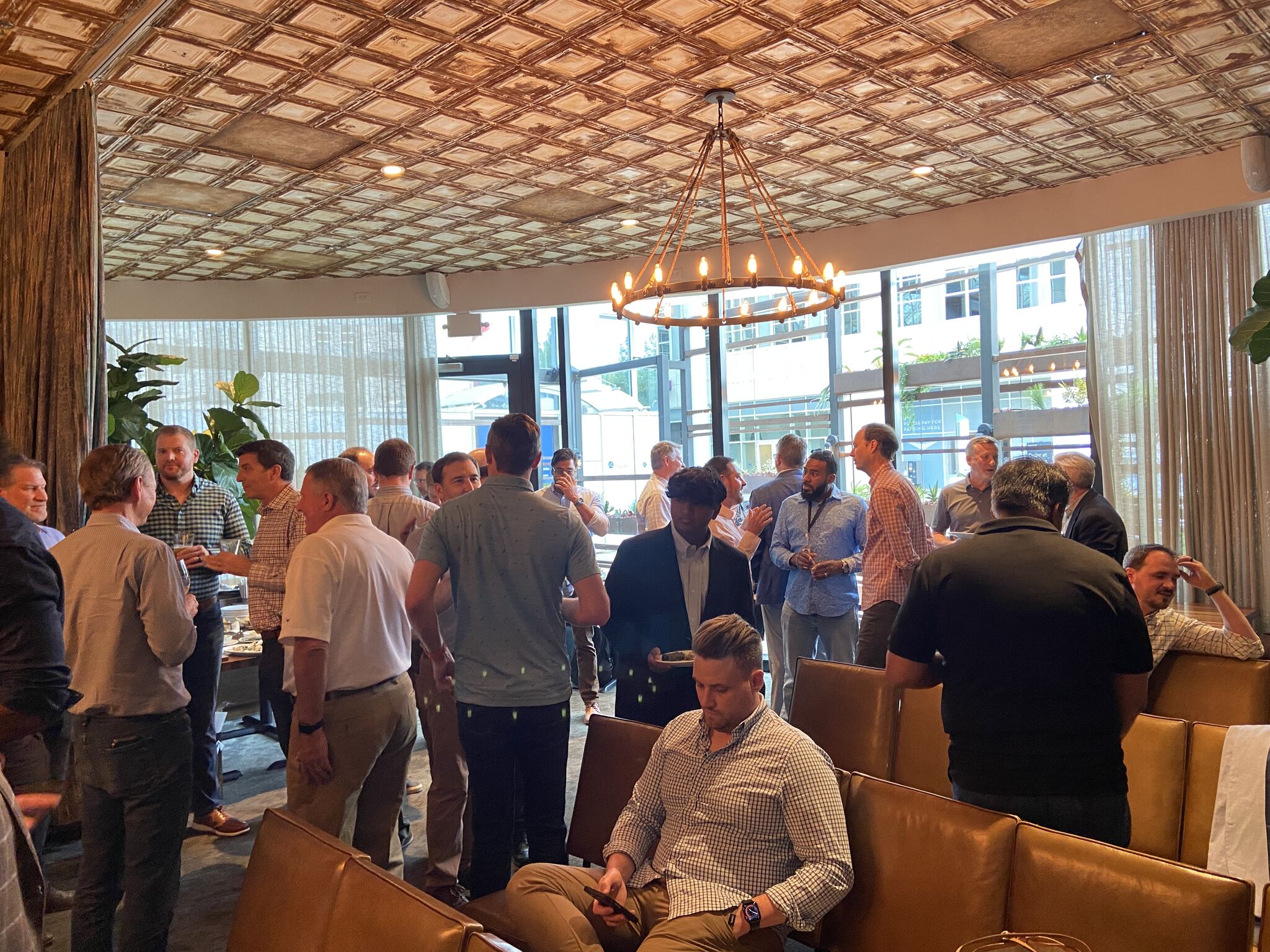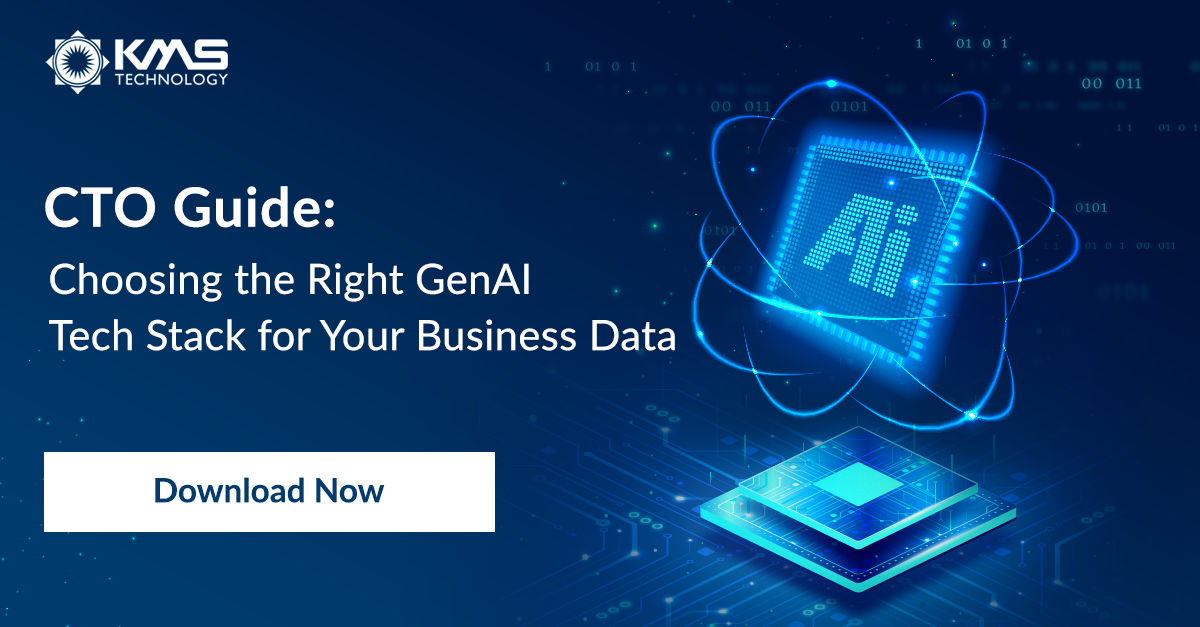Roundtable Recap: Harnessing the Power of AI in Software Development
With generative AI storming the software industry, technologists and business leaders alike are trying to wrap their minds around the new present (and the near future).
We sat down with Atlanta’s best minds in tech to talk generative AI in a roundtable designed for CTOs.
We discussed:
- Choosing the right generative AI model
- Understanding custom vs public models
- Driving adoption internally
- Managing legal risk
- Creating governance
…And more!
Video coming soon. Keep reading to learn more about the roundtable discussion.
Meet the Panelists

- Prabhu Sadasivam, AVP of Technology at LexisNexis
Prabhu is an accomplished Technology executive at LexisNexis Risk Solutions, practicing Software Engineering and Data Analytics for over twenty-five years. He leads large engineering teams with 200+ members and is responsible for the largest revenue-generating platform in the RELX portfolio. With an impeccable passion for modernizing organizations and aligning technology outcomes to business outcomes, Prabhu is a thought leader and driving force behind a performance-driven culture.
- Coty Rosenblath, CTO at Katalon
Coty is a hands-on technology leader with experience designing, building, and deploying enterprise software. As a senior technologist at a leading global provider of financial services software, Coty has a wealth of experience in presenting a corporate vision to employees, customers, prospects, and partners. Coty now leads Katalon, which accelerates the end-to-end software development process with an all-in-one quality management platform, enabling teams of any size to deliver world-class customer experiences, faster, easier, and more efficiently.
- John Jeske, Solutions Architect at KMS Technology
An award-winning solutions architect and patented inventor, John has created a comprehensive methodology and architecture for managing operations in the M&A space, from a high level portfolio down to individual projects. Immersed in all things AI, John’s consulting experience has led him to cultivate aggressive curiosity, fierce collaboration, and a ravenous appetite for change when it comes to technology.
CTO Roundtable Takeaways
Need the short-and-sweet version? Check out these 5 takeaways from the roundtable.
1. Choosing the right generative AI model
- Augment existing models based on the specific use case, rather than retraining a general model for each task. Let the interface determine the model.
- Organizations must weigh IP protection and data security against cost and time when it comes to selecting a public or custom model.
- Software companies must consider both how to boost their productivity internally and how to deliver more value to customers.
2. Understanding custom vs public models
- Public models like ChatGPT offer out-of-the-box capabilities that can quickly generate returns. However, public models pose security risks, and because they’re so generalized, they may not add unique value.
- Public models can be fine-tuned with internal data to generate better responses based on the provided context. Ask fine-tuned large language models to stay “factual” to ensure that they fully incorporate the provided data.
- Software companies can train models with their own data. While domain-specific models are most effective at generating value (and enabling monetization), they require strong data governance, clean data, and budget for training costs.
3. Driving adoption of generative AI
- Tackle adoption from the bottom-up and the top-down.
- A boots-on-the-ground team can explore generative AI to solve their immediate problems, creating new use cases based on their needs.
- Senior management can evaluate the market more broadly, determining what generative AI means internally and for customers.
- Expose all departments to generative AI—including safeguards—with townhalls, outreach from leadership, and ad-hoc and formal training.
4. Managing risk
- IP protection and guardrails for sensitive data is an ongoing conversation in the generative AI space and model training ethics.
- Evaluate the model’s privacy policy. For example, Open AI provides protection for businesses by enabling them to opt-out of logging prompts and outputs for training data.
- Leverage version control to track the prompts and model versions (ex: GPT 3.5 or 4) to understand the outputs received.
- Understand GPT is non-deterministic and will produce different answers for the same prompt.
- Validate any outputs as models often hallucinate false information.
5. Creating governance
- We don’t yet know what is fair use, which can make large public models problematic. Any code produced from large models can open-source your product without the right precautions in place.
- Don’t copy and paste any outputs, like content or code, wholesale. Rather, use it to jumpstart your process and add your own direction and style.
- Currently, human authorship is required for copyright. Copyright only holds for everything the machine didn’t produce when AI is in use.

Stay Tuned in on Generative AI
By next week, more advancements in generative AI could warrant an entirely new roundtable. The pace of change is fast; get the help and guidance you need to stay at the forefront.
KMS Technology has a team of tech experts working with generative AI daily. We’ve developed multiple consulting offerings to help our clients and partners keep up, and we’ve created a rigorous set of training courses for our team across many technical roles. Let us keep you ahead of the curve!









